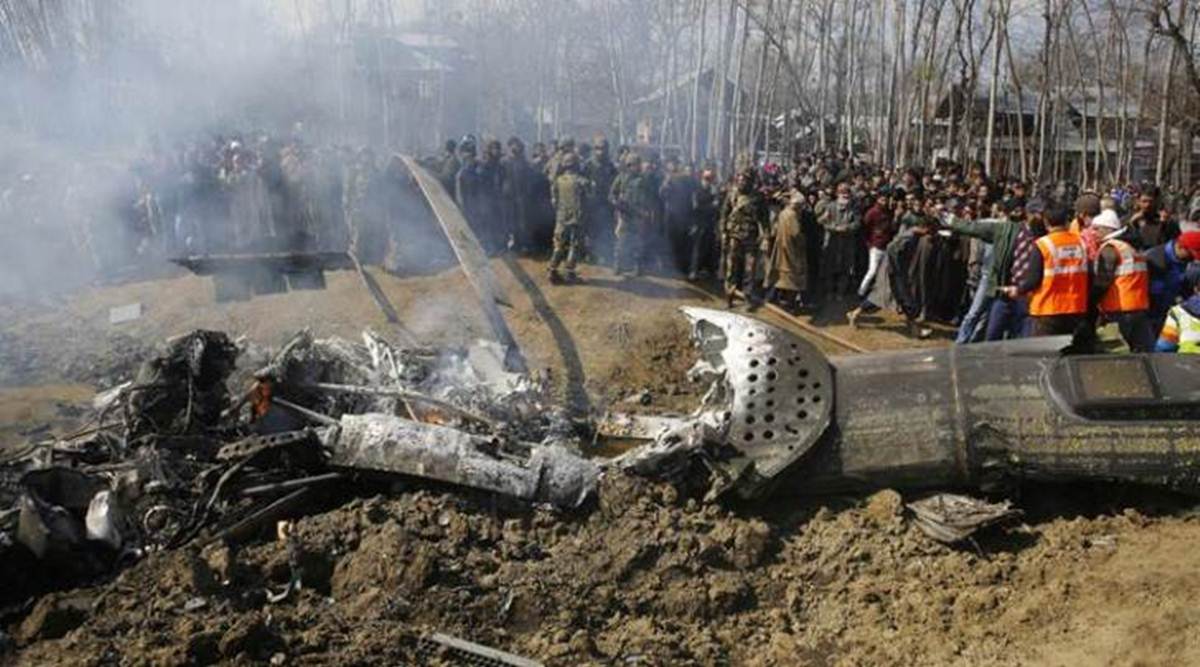 An IAF Mi-17 chopper crashed in Budgam area of Jammu and Kashmir. (Express photo/Shuaib Masoodi/File)
An IAF Mi-17 chopper crashed in Budgam area of Jammu and Kashmir. (Express photo/Shuaib Masoodi/File)THE ARMED Forces Tribunal (AFT) has stayed any action on a report of the Court of Inquiry against the two Indian Air Force officers behind the shooting down of a helicopter in friendly fire in Budgam in February 2019, a day after India carried out air strikes in Balakot, Pakistan.
The AFT cited “non-compliance” with various statutory provisions by the Court of Inquiry as the reason for the stay.
Six IAF personnel and one civilian had been killed after the Mi-17 V5 had gone down on February 27, 2019, in Budgam, Kashmir. In April 2019, the Court of Inquiry had held the two officers responsible for the incident, which happened during a dogfight between Indian and Pakistani aircraft, saying they had not ensured that there weren’t any friendly aircraft in the zone.
The two officers, Group Captain Suman Roy Chowdhury, who was chief operations officer at the Srinagar airbase, and Wing Commander Shyam Naithani, the in-charge of Air Traffic Control that day, had challenged this, saying the government had refused to share the Court of Inquiry report with them, hampering their defence.
In an application before the AFT last week, the officers said the Court of Inquiry was not “competent to investigate” the incident and “suffers from several legal and procedural infirmities”. They urged that disciplinary action not be taken against them based on “the findings of a mala fide, predetermined, illegal” probe.
In its order, the AFT said several provisions of the Air Force Rules had been “violated” by the Court of Inquiry, though adding that its order was meant only as interim relief. One of the violations the tribunal referred to is in line with the officers’ questions regarding why the findings of the inquiry had not been shared with them.
The officers had argued that while the Air Force chief can deny the same given security considerations, their efforts to find out if this clause had been invoked in their case had been blocked since January. The officers were told on August 19 finally that the proceedings could not be shared as they were “secret”, and were allowed access to only the “unclassified” parts.
On August 21, the two officers had challenged this before the authorities within the Air Force, questioning why they had been provided “only partial/ redacted/ reduced portion” of the court of inquiry, “that too without copy of order of the CAS (Chief of Air Staff), who is the only competent authority in the matter”. But the Western Air Command had rejected this application as well, saying an “identical remedy” sought by them had already been “duly disposed of”.